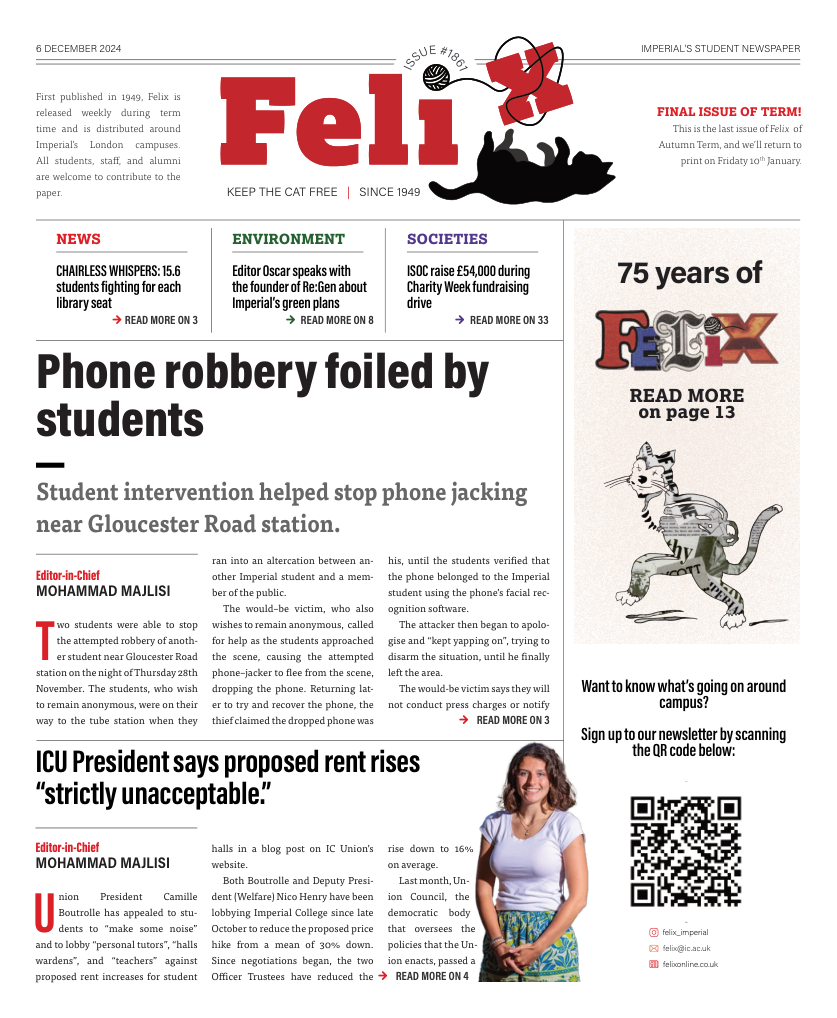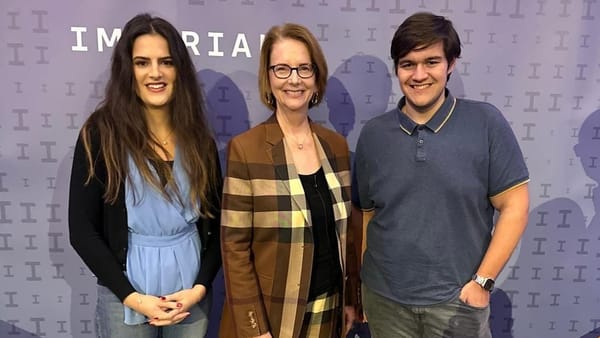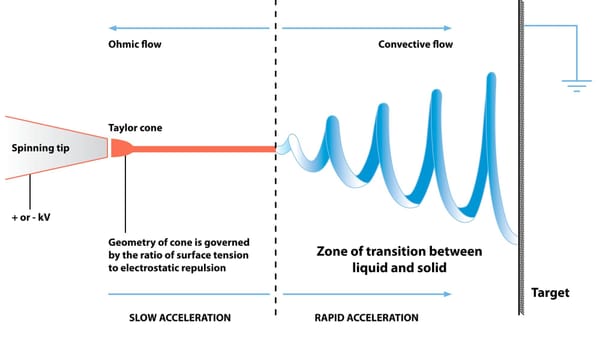Julia Gillard on science and elitism
Anubha Sukhada Bal shares her perspective on Julia Gillard’s thoughts on elitism and DEI in academia.
With her famous misogyny speech in the Australian Parliament resurfacing on social media platforms recently, Julia Gillard has been celebrated as a “feminist icon”, and rightly so – it was a very inspiring speech in which she stood up, not only for herself, but for women. They say “never meet your heroes”, and this sentiment can probably be exaggerated when it comes to politicians given their less than perfect moral records, however, it was certainly exciting to meet the woman whose speech I once had memorised.
Meritocracy is a myth. Access to science at university is not solely on merit – privilege plays a substantial role.
Her talk covered many points, but the one I was most drawn to was the discussion surrounding public distrust of science and perception of science as elitist. While there is a broader point to be made about anti-intellectualism and the rise of fascist movements, there is a fundamental reality to be recognised: the scientific community is elitist. Its structure has long been shaped by systemic inequalities, such as racial and gender disparities. Meritocracy is a myth. Access to science at university is not solely on merit – privilege plays a substantial role. This explains then to a large degree, the skew in scientific “success” (or at least the skew in who is rewarded, especially in fields like Physics) towards men, especially those who are wealthy and white. A previous question during the talk had prompted discussion around this, and so, I held my nerve, and asked the former Australian Premier a question.
I asked her, in a less well articulated way, if she agreed that the “perception” of science being elitist and exclusive wasn’t really just a perception at all – it was entirely true, and whether or not this is a large contributing factor in public mistrust and must be tackled “from within” the community.
If I had the time (and had held my nerve slightly more), I would have articulated an experience shared by so many women in academia: we are brought up to respect “great” and “intelligent” men who furthered human knowledge or rather, male knowledge, given women were de–facto barred from academics for a large portion of human history. These great men who, at worst, directly and violently abused us, and at best, belittled us and “passively” counted us out as subhuman. Over the years, I have attended hundreds of physics lectures in which we have celebrated the achievements of many men who fit this description, studying the equations and techniques which carry their names. Each time, I wonder what the women in their lives suffered. I wonder if it is true that Mileva Marić, the ex–wife of Albert Einstein, helped with his work before being forgotten, and how she felt about it and would feel if she were alive today. I wonder what Mary Louise Bell, the ex-wife of Richard Feynman, who testified that he had abused her physically, would feel if she saw how he is still celebrated as a genius. Women didn’t and still don’t matter – we cast them aside to celebrate their “brilliant” husbands.
The perception of science as elitist isn’t just a perception – it’s a reality that must be tackled from within the community.
Unsurprisingly, Gillard answered in agreement. The start of her answer touched on the aspects I mentioned and the way the story of science is (inaccurately) told. She then concurred that this is certainly not how science is best done – excluding talent only hurts the scientific quest. The second half of her answer was somewhat shallow, alluding to a DEI–focused approach. In practice, DEI schemes at universities do almost nothing for minorities. Even at best they just help people get in the door, but the ladder is still swiftly pulled up above them.
(see “DEI and Women in Physics” Felix #1857).
It was also interesting to see Gillard be so deliberately diplomatic, insisting on non–partisanship in her answers.
To see a once clearly opinionated politician, glued rigidly to the non–offensive centre ground seemed almost disingenuous, but was probably necessary given her current role leading a charity
organisation.
There is a fair question to be asked as to whether condemning nothing and nobody (what I consider the modern day definition of diplomacy) actually helps anything. Regardless, it was a fruitful evening – I had the chance to meet Julia Gillard, whose famous speech was a good first introduction to feminism, and got a photo with her.









